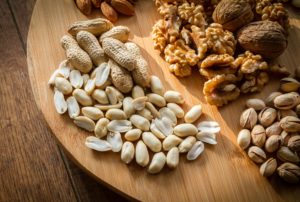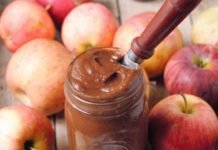
February is heart health awareness month. I know, it’s pretty much March already. My friends continuously give me grief for being perpetually late on many occasions. (It’s something I’m working on.)
But because heart disease is one of the leading causes of death for both men and women, I thought heart health is far too important to not mention even if I am in the wrong month.
Unfortunately, there is no single magic bullet for preventing heart disease but rather a combination of healthier habits that will keep your heart strong. You probably know the basics: exercise, better nutrition, drink in moderation, and keep a handle on stress. But even if you know the basics it’s still hard to implement better habits without a clear direction and knowing where to start. It can quickly become overwhelming and completely discouraging.
Well, not to worry.
Because the nutrition factor is usually not only confusing, but also challenging for most to adjust, I’ve compiled some of the best foods for heart health that are both delicious and easy to integrate into your diet.
1. Avocados

Millennial jokes aside, it’s pretty fantastic avocados have been thrown into the spotlight and have become a regular part of meals at both restaurants and in the home. Not only chock full of antioxidants and vitamins such as C, E, K, and B, avocados are a great source of healthy fat that gives your heart a boost. Studies show eating avocados daily helps ease inflammation and improves your cholesterol by lowering the bad LDL cholesterol, and raising the good HDL cholesterol which helps keep your arteries clear.
2. Asparagus

A truly unique vegetable, (and not just because of the ah, unfortunate urinary odor) asparagus naturally helps to keep your arteries clear. A compound in asparagus has been found to inhibit a particular enzyme called ACE that actively constricts your blood vessels. By impeding this enzyme, asparagus helps lower your blood pressure and prevent blood clots that can lead to heart disease. And just as a bonus, asparagus is also full of antioxidants, is an anti-inflammatory, and has a long resume of nutrients including vitamins K, B1, B2, C and E.
3. Green Tea

Along with boosting your metabolism and improving brain function, reducing your risk of cardiovascular disease can be added to the many benefits of green tea. Green tea contains a natural compound called catechins which have been found to significantly lower the bad LDL cholesterol and triglyceride levels. Studies have also shown that green tea drinkers have a 28% lower risk of developing coronary artery disease.
4. Berries

I have a coworker who on a number of occasions has simply brought in a Costco-sized container of blueberries to polish off for dinner. While perhaps not ideally the most balanced meal, his heart will certainly thank him. Low in calories and absolutely delicious, berries are anti-inflammatory and rich in the antioxidant compound called polyphenols, which help reduce LDL cholesterol and improve circulation. And while all berries are great, blueberries, blackberries, and cranberries are rockstars for reducing your risk of heart disease.
5. Nuts

If you have a nut allergy I suppose this will be a hard pass. Otherwise, a daily dose of nuts will make your heart happy. Nuts are packed with protein, fiber, and are another great source of healthy monounsaturated fats and omega-3 fatty acids. These components help lower your LDL cholesterol, improve your artery walls, and help prevent dangerous heart rhythms. Walnuts in particular are especially brimming with omega-3 fatty acids but whichever you choose, be sure to vie for the raw and unseasoned nuts to glean the most benefits and nutrients.
Bonus Tip:
Spice it up. I know us Minnesotans are notorious for avoiding anything spicy but instead of pouring on the salt, simply add a dash of spices for that extra flavor. Your mouth doesn’t have to feel like it’s actually on fire to reap the health benefits as sweet and savory spices like cinnamon and turmeric are excellent for heart health.
Cinnamon not only helps lower cholesterol levels but clears out plaque in your arteries and protects your blood from oxidation. Throw some in your coffee, smoothie, or make some delicious cinnamon toast to get in that extra spice.
Turmeric’s active ingredient curcumin is a powerful antioxidant that fights inflammation which can lower chances of blood clots and hardening of the arteries. If you’re not too familiar with how to use turmeric you can start by making this delicious and healing turmeric tea.
Read this next: Golden Milk: Your New Elixir for Good Health
















